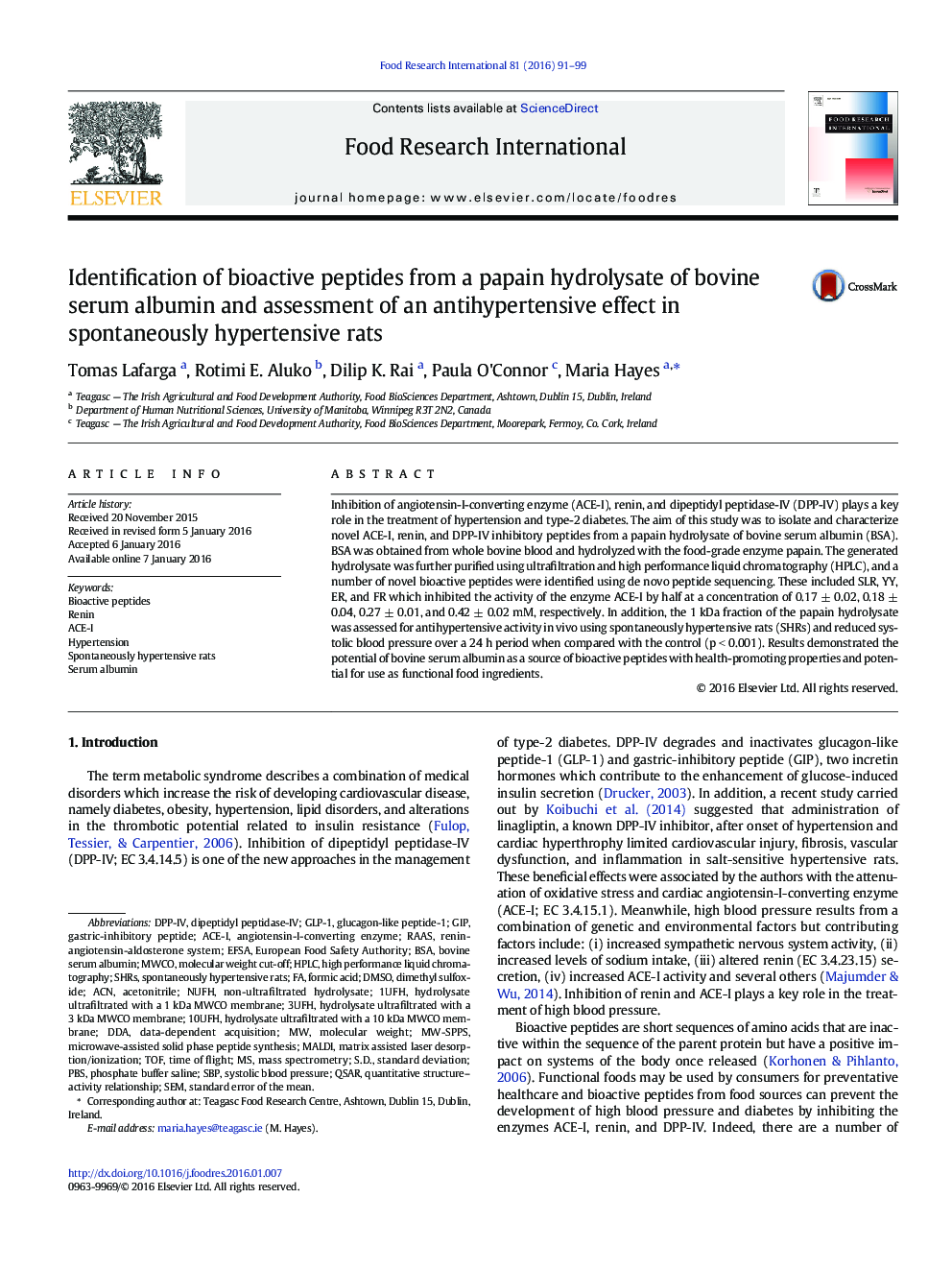| Article ID | Journal | Published Year | Pages | File Type |
|---|---|---|---|---|
| 4561250 | Food Research International | 2016 | 9 Pages |
•Utilization of bovine blood proteins for the generation of biologically active peptides•In silico analysis used for selection of enzymes and proteins for bioactive peptide generation•Identification of bioactive hydrolysates with in vitro ACE-I inhibitory activity•Identification of bioactive di- and tri-peptides including the renin inhibitor SLR and the ACE-I inhibitors YY, ER, and FR•Assessment of hypotensive effects in vivo in spontaneously hypertensive rats
Inhibition of angiotensin-I-converting enzyme (ACE-I), renin, and dipeptidyl peptidase-IV (DPP-IV) plays a key role in the treatment of hypertension and type-2 diabetes. The aim of this study was to isolate and characterize novel ACE-I, renin, and DPP-IV inhibitory peptides from a papain hydrolysate of bovine serum albumin (BSA). BSA was obtained from whole bovine blood and hydrolyzed with the food-grade enzyme papain. The generated hydrolysate was further purified using ultrafiltration and high performance liquid chromatography (HPLC), and a number of novel bioactive peptides were identified using de novo peptide sequencing. These included SLR, YY, ER, and FR which inhibited the activity of the enzyme ACE-I by half at a concentration of 0.17 ± 0.02, 0.18 ± 0.04, 0.27 ± 0.01, and 0.42 ± 0.02 mM, respectively. In addition, the 1 kDa fraction of the papain hydrolysate was assessed for antihypertensive activity in vivo using spontaneously hypertensive rats (SHRs) and reduced systolic blood pressure over a 24 h period when compared with the control (p < 0.001). Results demonstrated the potential of bovine serum albumin as a source of bioactive peptides with health-promoting properties and potential for use as functional food ingredients.
